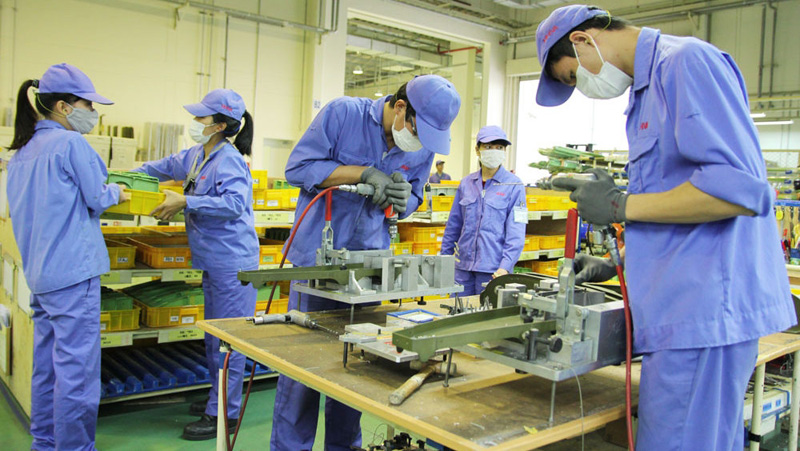



|
ADB maintains its economic forecast for Vietnam at 7.1% (photo: Pham Hung) |
The highlight of the forecasts is the optimism concerning Vietnam's economic growth in 2018.
The International Monetary Fund (IMF) kept its forecast for Vietnam's economic growth in 2018 at 6.6% and inflation below 4%, as the country will continue to maintain its momentum for economic growth due to reforms and the Government's commitment to stabilising the macro-economy.
The Asian Development Bank (ADB) also maintained its economic forecast for Vietnam at 7.1%, as it held earlier this year, which is a positive assessment in the context of the ongoing US-China trade war.
Meanwhile, the World Bank (WB) stated that Vietnam's economy can grow at 6.8% in 2018, 0.3 percentage point higher than its forecast at the end of the first quarter this year.
Similarly, the Central Institute for Economic Management (CIEM) also showed its optimism with regards to the domestic economy, stating that the Vietnamese economy could expand by 6.71% this year instead of the 6.67% as predicted in April.
In addition, all macroeconomic indicators are positive with exports projected to increase by 12.11%, the trade surplus reaching US$1.2 billion, and average inflation anticipated to be curbed at 3.93%.
He noted that the global financial market has seen worrisome developments in the first six months of this year. The US-China trade conflict has affected the pace of US economic growth, coupled with rising dollar interest rates, making financial markets in emerging economies less attractive. However, Vietnam has still attracted US$1.5 billion worth of investment capital, demonstrating the confidence of investors in the domestic economy.
However, besides the achievements, the domestic socio-economic situation has also showed inadequacies which require specific measures to address them.
The government said that, although the July CPI went down by 0.09% after three consecutive months of increases, the pressure on the CPI increase remains very high, particularly in the context of unpredictable and challenging global economic situation.
Economists said that curbing inflation below 4% in 2018 will be a challenge as many unfavourable factors have occurred, including high inflation in May and June due to the price hike of food and oil. Inflation in June posted the highest rise compared to the same period over the past seven years.
The Ministry of Planning and Investment is concerned that if inflation continues its pace, the target of curbing inflation below 4% would be hard to fulfil.
"Inflation for the whole of 2018 will rely on the prices of oil and pork. If the prices of the two commodities stay the same as present, the annual average inflation is estimated at 3.4-3.5%. If the prices continue to go up, average inflation will approach 4%," economist Ngo Tri Long said.
In addition, risks from natural disasters and the price adjustment of a number of goods managed by the State will also contribute to raising inflation.
Nguyen Anh Duong, Head of CIEM’s Macroeconomic Policy Department, said that the adjustment of goods priced by the State must be implemented in a transparent, cautious, and flexible manner. It is also advisable to carry out an active, cautious and flexible monetary policy combined with maintaining reasonable liquidity and controlling credit being poured into real estate.